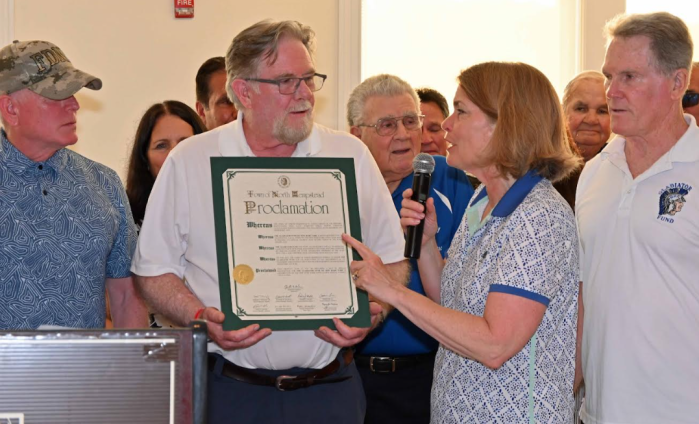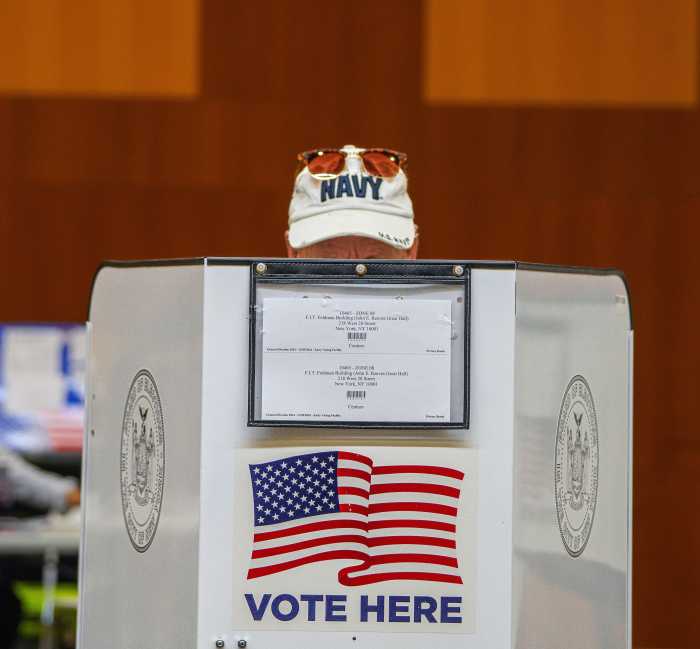Governor Paterson Mandates Ignition Interlock for DWI Offenders
Governor David Paterson recently held a news conference at the Nassau County Police Academy in Massapequa Park to announce a new provision to Leandra’s Law, requiring that all individuals convicted of a DWI, even first time offenders with, or without a child in the vehicle to install an ignition interlock system on any vehicle they operate. The provision went into effect on Sunday, Aug. 15.
This is a triumph for the advocates of ignition interlocks, including the local Long Island chapter of Mothers Against Drunk Driving (MADD) who have lobbied tirelessly in Albany to remove it from judicial discretion, an optional condition assigned to those convicted of drunken driving.
“I fought for this new law to ensure that an ignition interlock will take the weapon out of a drunk driver’s hands; ignition interlocks have proven effective at stopping convicted drunk drivers from committing repeat DWI crimes,” said Senator Charles Fuschillo, Jr. “With drunk drivers killing hundreds of people on New York roads every year, this is an important and critical step to end the drunk driving epidemic in New York State.”
Ignition interlocks are breath test devices that are linked to a vehicle’s ignition system. The device prevents the car from being started if alcohol is detected on the driver’s breath.
“While mandatory interlocks can be life-savers that literally take the keys out of the hands of convicted drunk drivers, we can never become complacent or think that we have done all we can,” said Nassau County District Attorney Kathleen Rice. “As long as there is one driver who gets behind the wheel of a car after drinking, then we are all at risk and still have work to do.”
The costs associated with the device and its installation are assigned to the offender, and are at no cost to taxpayers. The ignition interlock devices have proven effective in states where the law has already been established. In such cases, New Mexico reported that cases of DWI crashes dropped by 31 percent, DWI related injuries were reduced by 39 percent, and DWI related fatalities dropped by 35 percent. New York requires the devices be installed for a minimum of six months, and maximum of five years. Anyone attempting to circumvent the device can face additional charges and imprisonment.
In addition to New York, only 11 other states require offenders to install the ignition interlock systems on their vehicles. The New York State Division of Criminal Justice Services estimates nearly 25,000 drivers will be ordered to install the interlock ignition device each year.
Nassau County Police Commissioner Lawrence Mulvey said, “The Nassau County Police Department has made arresting DWI offenders one of its top priorities and we will aggressively continue these efforts to make our roadways safer and protect our most precious natural resource, our children.”
MADD Long Island Advisory Council Chairperson Denna Cohen was present, in full support of the legislation, not only as a victim advocate, but also as the mother of a victim. A multiple offending, drunken driver killed her daughter, Jodi, 21 years ago.
“Mandatory interlocks on all DWI offenders will save lives,” said Cohen. “I am now without Jodi longer than I had her and you know what, the pain still does not go away. It is still the same open wound in my heart and in my family’s hearts.”
Cohen said, “If this law, Leandra’s Law, had been in effect 21 years ago, I wouldn’t be standing here now; Jodi would be here now; Leandra would be here now; Katie would be here now, because these people wouldn’t have been on the streets.”
Family members of other victims were present for the announcement including those of Katie Flynn and Leandra Rosado.
In 2005, in a wrong-way, head-on crash on the Meadowbrook Parkway, a drunk driver struck the limousine 7-year-old Katie Flynn rode in, causing her death and the death of the limousine driver, Stanley Rabinowitz. The offender, Martin Heidgen, was convicted of their deaths and is serving an 18-year-to-life sentence in Nassau County Jail.
The advocacy of Neil and Jennifer Flynn, parents of Katie, led to the passage of legislation, creating the crimes of aggravated vehicular assault and aggravated vehicular homicide in 2007.
“We live with the pain of Katie’s death every day; so, in the hopes of saving others from suffering the loss of a child, we’ve joined in the fight against drunk driving, and we support legislation that results in aggressive DWI prosecutions,” said Jennifer Flynn. “As long as we can make a difference, we will continue to do everything we can to change the permissive culture that still surrounds drunk driving.”
Father of Leandra Rosado, Lenny, is aggressively pursuing stricter penalties, tougher convictions and changes to anti-DWI laws. His daughter was killed less than a year ago in a horrific crash on the West Side Highway, where a friend’s mother was hosting a sleepover for her own daughter and several child friends. The drunken crash resulted in the death of 11-year-old Leandra and the serious injuries to the other child passengers. The offender, Carmen Huertas, has pled guilty and is scheduled to be sentenced in a Manhattan courtroom on Friday, Oct. 1.
Governor Paterson signed the initial Leandra’s Law into effect in November 2009, less than six weeks after Leandra was killed. The law maintains that individuals who drive drunk with a child in the car will be charged with a felony and face up to four years in prison. The law also mandates up to 25 years sentence for drunken drivers who kill a child passenger in a DWI crash, and up to 15 years for causing serious injury to a child passenger of a drunken related crash. Leandra’s Law penalties are in addition to charges and penalties imposed from the initial crime. Leandra’s Law is one of the toughest DWI laws anywhere across the nation. In less than eight months, nearly 400 people have been arrested in New York under Leandra’s Law for endangering the lives of children.
Governor Paterson said, “This week, New York State will take a huge leap forward in continuing our efforts to make our roadways safer. With this important provision, New York State now has some of the toughest DWI laws in the nation, with a strong focus on prevention. Requiring ignition interlocks for drunk drivers will prevent more senseless deaths and spare other families the endless grief suffered by those who knew and loved Leandra Rosado and Katie Flynn.”
As a result of a personal letter from Lenny Rosado to President Barack Obama, he has been invited to speak at the White House on Monday, Sept. 20 in an effort to make Leandra’s Law a federal law across all 50 states.
“This law will not only save lives and keep our roads safe, but it sends a message that if you drive drunk in New York State, you will be punished,” said Executive Edward Mangano. “The destruction that can be caused by drunk drivers is irreparable, and we have to take every precaution we can to prevent this crime; Leandra’s Law adds to our zero-tolerance policy in Nassau County, and shows that this serious crime has equally serious consequences.”
Many other local and state lawmakers were present at the press conference and have played a significant role in ensuring the passing of and the additions made to Leandra’s Law including Senators Owen Johnson and Martin Dilan; Assemblymen Tom McKevitt, Joe Saladino, Dave McDonough, and Harvey Weisenberg.
Long Island’s most recent case under Leandra’s Law was the arrest of a Huntington Station man on Wednesday, Aug. 4, who pleaded not guilty for allegedly driving drunk with a 1-year-old baby in the back seat. Police say the man was drunk and has had his license suspended 18 times before this incident.





























